

The courses are taught by professors from Vancouver School of Economics as well as by associated members of Lima School of Economics who are leading researchers in their areas of specialization.
Lima Summer School is a great opportunity for postgraduate and advanced undergraduate students in Latin America to interact with and learn from a world-class faculty. It also offers recent graduates and practitioners in economics the opportunity to develop and strengthen their areas of expertise.
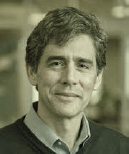
The Vancouver School of Economics (VSE) is pleased to be a partner of Lima School of Economics in the inaugural 2016 Lima Summer School. The VSE has a long tradition of international collaborations in research and teaching, and we are thrilled at this new opportunity of enhancing collaborations with students and scholars in Peru and South America, more generally.
Starting in 2016, VSE faculty members will teach mini courses in various fields of economics as year as part of the Lima Summer School. This will be a great opportunity for students and young professional economists to learn about of state-of-the-art research in economics, enhance their career prospects, and prepare them for further studies.
Hoping that you will join us in Lima next year!
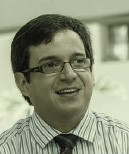
Lima School of Economics (LimaSE) is an initiative of the Department of Economics at Universidad de Piura, Peru. One of the main objectives of LimaSE is to promote graduated level programs in economics that enhance advanced learning and research, as well as strengthen the expertise of students, academics and practitioners in the field.
In association with VSE, one of the top economic departments in the world, we have organized the Lima Summer School in Economics. This Summer School offers prospective participants a world-class academic experience, a unique collaborative environment with top researchers, and the opportunity to experience one of the most vibrant and dynamic cities on the continent.
We look forward to meeting you in Lima for our 2016 Summer School edition.
This course focuses on economic issues related to exhaustible resources, such as fossil fuels and minerals. Topics covered include questions such as whether or not exhaustible resources are depleted too quickly in free market economies; explanations for the observed evolution of resource prices; the sustainability of economic growth in a country (or world) with a finite amount of resources; effects of resource booms on the rest of the economy; taxation of exhaustible resources; environmental issues related to resource extraction; energy and alternatives to fossil fuels; energy and climate change; international trade issues; and other relevant topics as time permits.
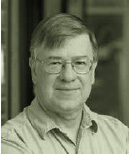
Dr. Copeland is Professor of Economics in the Vancouver School of Economics at the University of British Columbia. He obtained his PhD at Stanford University
Dr. Copeland is a leading researcher in the fields of Environmental Economics and International Trade. Most of his work has focused on the interaction between globalization, the environment and resources management. He has published high impact articles in top economic journals such as American Economic Review, The Journal of Economic Literature and The Journal of Environmental Economics and Management. Dr. Copeland is co-author of the book Trade and the Environment: Theory and Evidence. Princeton University Press, 2003.
A nation’s competition policy is a set of laws and institutions that promote economic efficiency through the protection and encouragement of competitive markets. While originally more prominent in a few of the most developed countries, increasingly experts have come to realize the importance of competitive markets in supporting growth in developing countries. As a result well in excess of one hundred countries now have competition laws and agencies to enforce them.
To this end, this course is designed as a graduate level course in competition economics. It will include a review of the major elements of a modern competition law as well as the economic models that justify and inform those elements and discussions of cases that illustrate competition law in action. Main topics covered include: agreements between competitors, mergers, vertical restraints, abuse of dominance and behavioral competition economics.
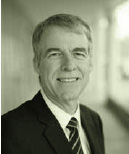
Dr. Thomas Ross is the UPS Foundation Professor of Regulation and Competition Policy at the Sauder School of Business at the University of British Columbia. He also teaches graduate courses in Business Performance and Public Policy at the Vancouver School of Economics. He obtained his PhD at the University of Pennsylvania.
Dr. Ross is the Director of the Phelps Centre for the Study of Government and Business. The influential research of Dr. Ross in the areas of competition policy, regulation, industrial organization and experimental economics has been published in leading scholarly journals such as American Economic Review, the Journal of Industrial Economics and the International Economic Review.
In a world of limited resources, determining what policies and interventions work is critical for the allocation of public resources and the design of public policy. It is important to know, for instance, whether antipoverty programs are indeed affecting behavior and the wellbeing of the target population. Measuring the causal effects of such interventions on outcomes of interest is, however, not straightforward as it is not possible to observe the outcomes with and without the intervention for the same individual at the same time.
In this course we will go through the state-of-the-art empirical approaches used by economists and social scientists to identify and estimate the causal effects of policy interventions. We will cover randomized-control trials, instrumental variables, diff-in-diff, regression discontinuity, and matching approaches. For each approach, we will discuss the intuition, key assumptions, strengths and weaknesses, and analyze relevant applications in the literature. Special emphasis will be given to recent peer-reviewed published academic articles that work with Peruvian Data.
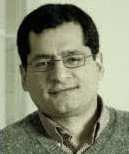
Dr. Jose Galdo is Associate Professor of Public Policy and Economics at Carleton University, in Ottawa, Canada and Research Fellow at IZA, Bonn, Germany. Since 2015 he is also an associate member of Lima School of Economics. He obtained his PhD. in Economics at the University of Syracuse, New York.
Dr. Galdo research focuses on program evaluation methods, labor economics and development economics. His research has been published in leading journals such as American Economic Review, Journal of Health Economics, Economics Letters, and Labour Economics. Dr. Galdo is currently a Visiting Associate Professor at the University of Maryland at College Park, and working in several field impact evaluation projects in Africa and South America.
The 2016 LimaSE Summer School will take place at the Lima Campus of Universidad de Piura, from February 15 to February 23, 2016. The Lima Campus is located at Calle Martir Jose Olaya 196, in the Miraflores District.
Courses will be held on mornings and afternoons according to the following schedule:

The investment for the full Summer School (including all courses) is US$ 1000. It is also possible to take individual courses. The investment for a single course is US$ 400. These amounts do not cover travel or accommodation expenses. Participants from outside Lima should make their own arrangements in order to cover these costs.
Payment instructions will be provided to admitted candidates by the Summer School Admissions Office.
At the conclusion of the Summer School, participants will receive a certificate indicating the number of total hours attended.
Prospective students should submit the following documentation by January 8th, 2016 in order to be considered for admission. Scanned copies of all required documents should be sent to: summerschool@udep.pe. Candidates will be informed of their acceptance decision on a rolling basis.

LimaSE will award three Summer Partial Scholarships to participate in the 2016 Lima Summer School in Economics. Two partial scholarships will be awarded to the best candidates among those who are current graduate or advanced undergraduate students in economics. A third partial scholarship will be awarded to the best application among recent graduates in economics, professionals and academics.
All candidates that apply to the Summer School before January 8th, 2016, will be automatically considered for the LimaSE Partial Scholarship (no additional application for this scholarship is required). The Partial Scholarship decisions will be made by the Summer School Admissions Committee based on the information provided by the applicants in their application documents.
Only those that apply to the full program will be considered for the LimaSE Partial Scholarship.